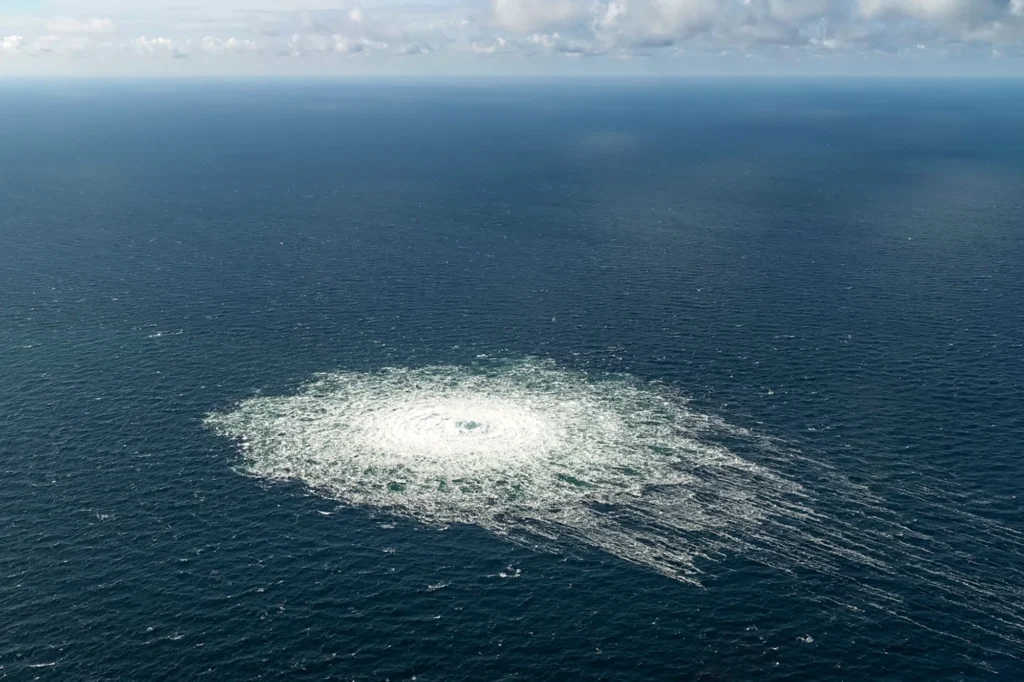By: Sakshi Agashe

What happened?
Swedish coast guards discovered the 4th leak on the Nord Stream pipeline on September 30th, 2022. The first two leaks were found in Danish water, and a third leak was in Swedish waters. The leakage is suspected to have been due to deliberate explosions.
What is the Nord Stream Pipeline?
The Nord Stream is an underwater pipeline through the Baltic Sea reaching from Russia to the northeast region of Germany, passing close to the Danish island of Bornholm. Opened in 2011, the pipeline can send 170m cubic meters of gas per day from Russia to Germany, and Germany depends on it to supply 40% of its gas. Due to the underlying cause of the recent Ukraine War, the pipeline had been closed off by the Russian-owned company in charge of the pipeline due to reported leaks.
This has been a significant cause for the deepening of the energy crisis in Europe as the pipeline provided a notable amount of gas to Europe for a lower cost. Despite the pipeline shutting down, the pipeline was still full of gas with 90% estimated to be methane gas, resulting in environmental damage too. The Director of the energy transition at the New York-based Environmental Defense Fund estimated that approximately 115,000 tonnes of methane had been released in Nord Stream 2. The leaks were also estimated to have released 14 million tons of CO2 which is about 32% of Denmark’s annual emissions or just 2% of Germany’s annual emissions.
Who caused this leakage?
The explosions were found to be a magnitude of 2.3 and 2.1 on the Richter scale, clearing the doubt whether the leakage was simply a natural incident. The source of the explosions is still under debate. The shallow waters of the Baltic Sea would have allowed the detection of submarines if they were used to target the pipeline, however, none were reported. Some claim Russia is a likely suspect with the sabotage being a component of their plan of waging war on both a political and economic level. There are several unanswered questions as to why Russia would sabotage the pipelines. The Russian Gazprom-controlled pipelines would face heavy losses in an investment that cost them billions if they were to damage their own pipelines. Damage to the pipeline would also cause Russia to lose its advantage of being a primary natural gas provider for Europe. Russian officials are blaming the US as the cause of the explosions in an attempt to increase its exports of liquified natural gas to Europe. The US has denied such a claim. With n much evidence to sufficiently determine the cause and the method of the explosions, it is best to deviate from forming any conclusions during this time.


